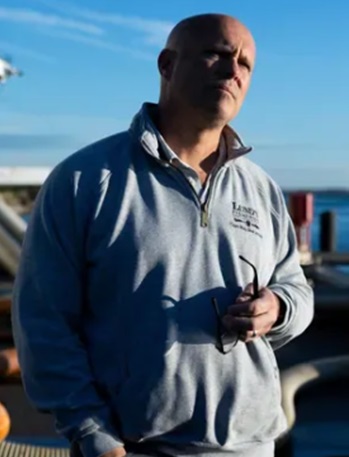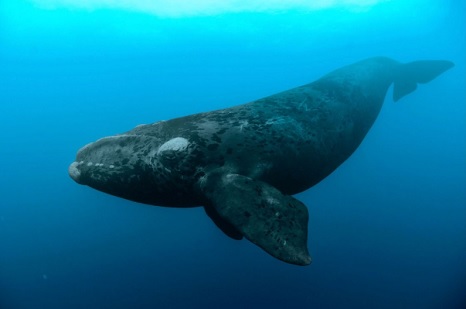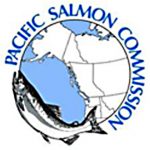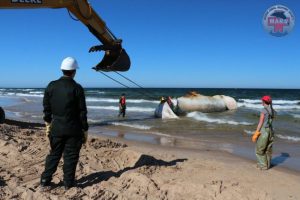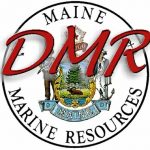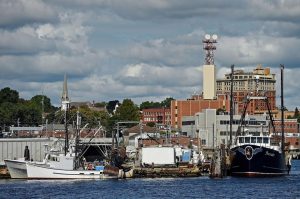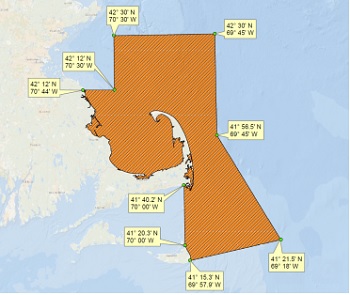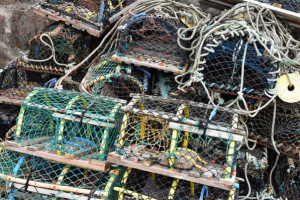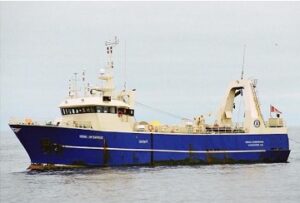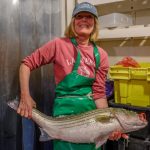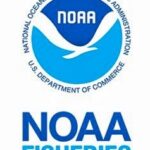Tag Archives: National Resources Defense Council
Here’s how activists use lobstermen as bait to endanger Maine industry, communities
 Far left activists are exploiting the recent death of an endangered whale to imperil the future of Maine’s iconic lobster fishery. These organizations have poor command of the facts and no knowledge of our industry. Their agitating imperils our fishery and the working communities that depend on it. Organizations like the National Resources Defense Council, the Conservation Law Foundation and others are exploiting this event to pressure regulators to impose new rules. These organizations are restless and can claim some success. A self-styled watchdog called Seafood Watch convinced Whole Foods to stop stocking Maine lobster products late in 2022. 3 Videos, more, >>click to read<< By Dustin Delano 16:12
Far left activists are exploiting the recent death of an endangered whale to imperil the future of Maine’s iconic lobster fishery. These organizations have poor command of the facts and no knowledge of our industry. Their agitating imperils our fishery and the working communities that depend on it. Organizations like the National Resources Defense Council, the Conservation Law Foundation and others are exploiting this event to pressure regulators to impose new rules. These organizations are restless and can claim some success. A self-styled watchdog called Seafood Watch convinced Whole Foods to stop stocking Maine lobster products late in 2022. 3 Videos, more, >>click to read<< By Dustin Delano 16:12
Cape May fishermen at center of major U.S. Supreme Court case
On Wednesday, the justices heard testimony in Loper Bright Enterprises v. Raimondo. The justices are deciding whether to uphold or overrule the four-decades old Chevron v. Natural Resources Defense Council decision. The justices heard three-and-a-half hours of oral argument this week. Multiple media outlets reported the justices asked questions indicating that the Chevron doctrine is unlikely to remain fully intact. The fishermen are challenging the National Marine Fisheries Service for requiring the herring industry to take on the cost of paying observers. Who is supporting the fisherman and why? The fishermen are represented by the Cause of Action Institute and New Civil Liberties Alliance. Groups such as the Cato Institute, Christian Employers Alliance, and members of Congress such as Sen. Ted Cruz and Speaker of the House, Mike Johnson, have filed briefs in support of the fishermen. more, >>click to read<< 12:15
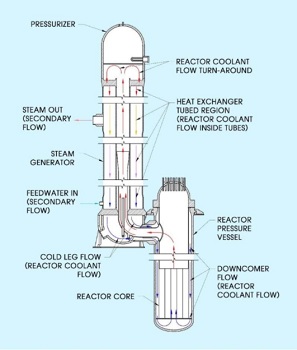
Right whale coalition calls for moratorium of offshore wind farm turbines
A local citizens group has announced the creation of the Save Right Whales Coalition, which is determined to stop offshore wind turbine projects that members say could harm whales. “Any species whose numbers are this low requires that we not take any additional action that could harm these whales,” political and environmental author and activist Michael Shellenberger said of the endangered North Atlantic right whales. “Particularly given that we have an abundance of nuclear and natural gas resources that would provide a sufficient alternative to these large industrial wind turbines.” >click to read< 13:49
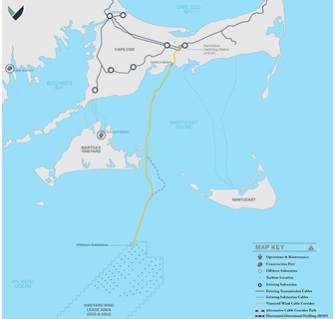
Offshore Wind Awaits Federal Environmental Reports
The latest industry initiative is the expansion of a cable factory in Charleston, S.C., where Paris-based Nexans plans to make some 620 miles of high-voltage power lines for the five wind projects under development by the utility Eversource and Danish energy company Ørsted. The companies declined to say how the five-year contract was granted. Nexans is also building a new cable-laying vessel with a 10,000-ton capacity.,,, The report was quickly criticized by representatives from the squid and scallop industry who said the 1-mile spacing between the turbines doesn’t improve safety and the layout restricts fishing. “This is the biggest screwup to hit our oceans ever,” said Dellinger, who is chairman of the Rhode Island Fishermen’s Advisory Board. >click to read< 16:58
Judge says Butt Out! Environmentalists Can’t Help Defend Fishing Rules
 Three environmental groups cannot join the U.S. government to defend against a challenge to an Obama administration rule requiring seafood companies to report the origin of the fish they sell, a federal judge ruled (click to open). The National Resources Defense Council, the Center for Biological Diversity and Oceana asked the court on March 7 to join the government in defending a suit from a group of fishing companies challenging the seafood traceability rule, which requires companies to disclose on a government form the vessel or collection point of origin for their fish. The companies say the rule will make seafood more expensive. The environmentalists say it is critical to protecting fish populations from illegal fishing. The environmentalists made specific arguments in support of the rule, telling U.S. District Judge Amit Mehta that reversal would affect their daily lives. Lol! affect their daily lives? What lives! click here to read the story 10:07
Three environmental groups cannot join the U.S. government to defend against a challenge to an Obama administration rule requiring seafood companies to report the origin of the fish they sell, a federal judge ruled (click to open). The National Resources Defense Council, the Center for Biological Diversity and Oceana asked the court on March 7 to join the government in defending a suit from a group of fishing companies challenging the seafood traceability rule, which requires companies to disclose on a government form the vessel or collection point of origin for their fish. The companies say the rule will make seafood more expensive. The environmentalists say it is critical to protecting fish populations from illegal fishing. The environmentalists made specific arguments in support of the rule, telling U.S. District Judge Amit Mehta that reversal would affect their daily lives. Lol! affect their daily lives? What lives! click here to read the story 10:07
The Enviro Crackpots keep pushing! – Cashes Ledge deserves permanent protection
 World famous oceanographer Sylvia Earle dived Cashes Ledge and declared it to be a “Yellowstone” of the ocean. Visions of enviro’s appear in my head doing the wave chanting ocean Serengeti over and over, trance like,,, Despite all the fishing that has rendered much of the Northeast a shell of its colonial riches, there remains in precious spots underwater life every bit the rival of the California coast and the Caribbean. Two such areas, Cashes Ledge and the
World famous oceanographer Sylvia Earle dived Cashes Ledge and declared it to be a “Yellowstone” of the ocean. Visions of enviro’s appear in my head doing the wave chanting ocean Serengeti over and over, trance like,,, Despite all the fishing that has rendered much of the Northeast a shell of its colonial riches, there remains in precious spots underwater life every bit the rival of the California coast and the Caribbean. Two such areas, Cashes Ledge and the New England Mid Atlantic Coral Canyons and Seamounts, deserve national marine monument status from President Obama before he leaves office. But there aren’t any such protections in the Atlantic, and groups such as the Conservation Law Foundation, the National Geographic Society, the Pew Charitable Trusts, and the National Resources Defense Council, are campaigning for protection. (Full disclosure: I (Derrick Jackson) coauthored a book on Maine’s puffin restoration and discussed the bird’s winter feeding at a CLF luncheon this winter). Get the gist? Read the rest here 16:58
Transparency? Christian Putnum SLAMS The Obama Administration, Enviro Groups, and NOAA collusion
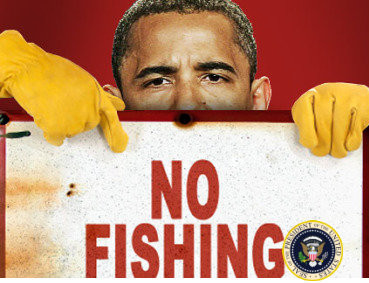 The National Oceanic and Atmospheric Administration and the Obama Administration are working closely with several environmental groups to “protect” vast areas of ocean off New England’s coast from the dreaded commercial and recreational fishermen. After NOAA’s utter failure to work with the stakeholders that make up the fishing community through the National Marine Fisheries Service, rebranded NOAA Fisheries after the name became synonymous with disastrous over-regulation, it appears an even less transparent process is now underway to regulate our natural resources. Read the article here 07:55
The National Oceanic and Atmospheric Administration and the Obama Administration are working closely with several environmental groups to “protect” vast areas of ocean off New England’s coast from the dreaded commercial and recreational fishermen. After NOAA’s utter failure to work with the stakeholders that make up the fishing community through the National Marine Fisheries Service, rebranded NOAA Fisheries after the name became synonymous with disastrous over-regulation, it appears an even less transparent process is now underway to regulate our natural resources. Read the article here 07:55
Fisherynation.com Editorial: The Great Atlantic Sturgeon Debacle
![]() This Sturgeon debacle should serve as a pretty clear indication of how our fisheries “management” system works, or more to the point, how it doesn’t work.
This Sturgeon debacle should serve as a pretty clear indication of how our fisheries “management” system works, or more to the point, how it doesn’t work.
How, by any stretch of regulation protocol, methodology, or just plain ol’ administrative integrity, can NOAA declare a species to be endangered without an assessment? Perhaps NOAA’s luminous legal department, Lois Schiffer, could give us the “legal” justification,,,continued






